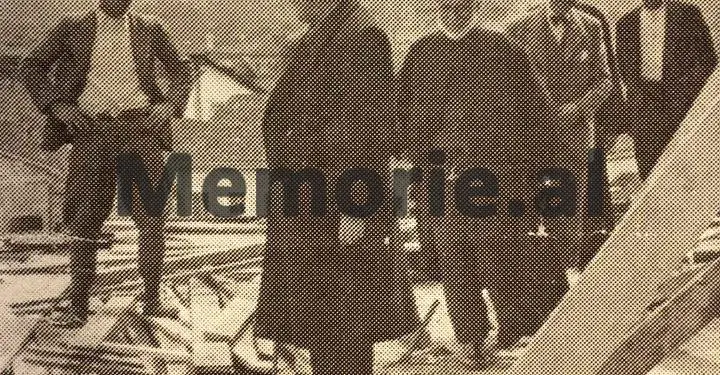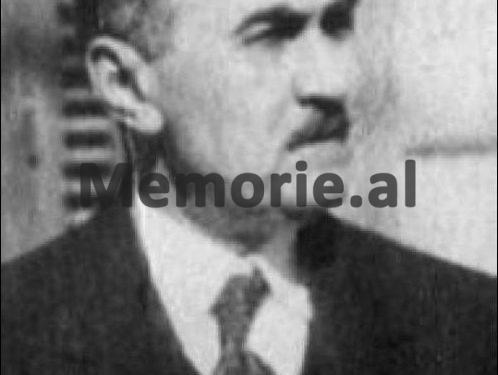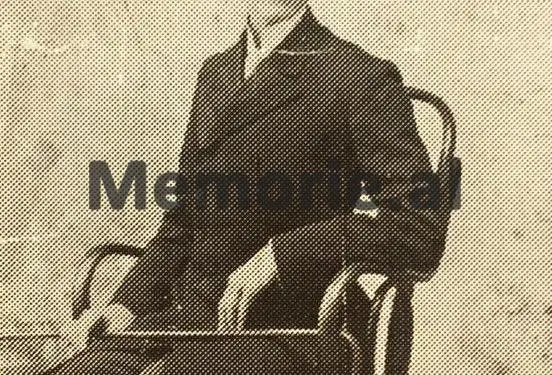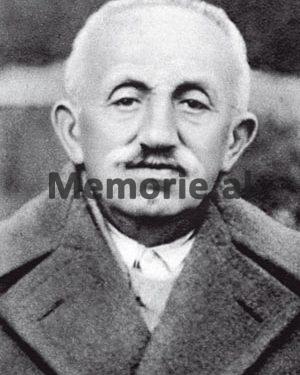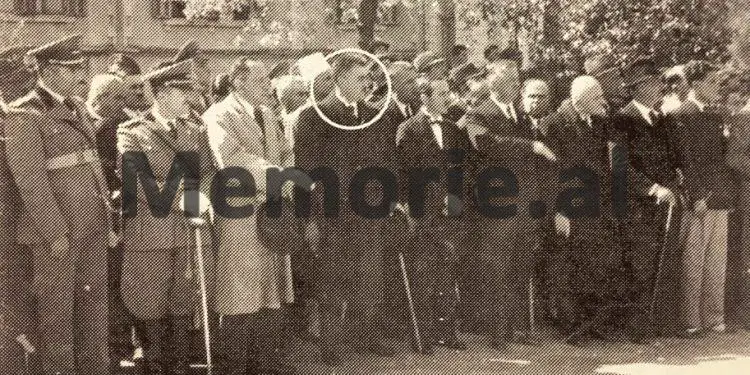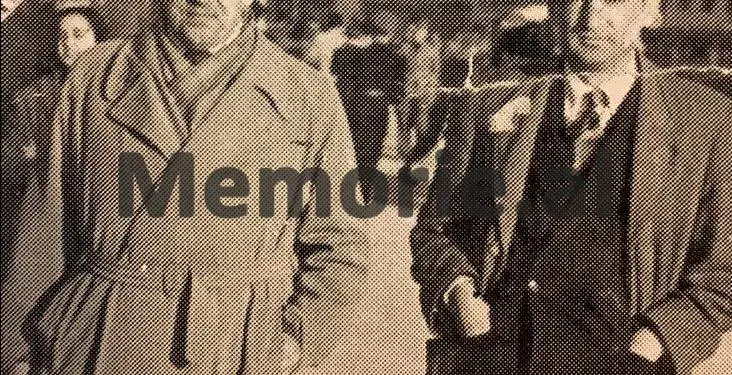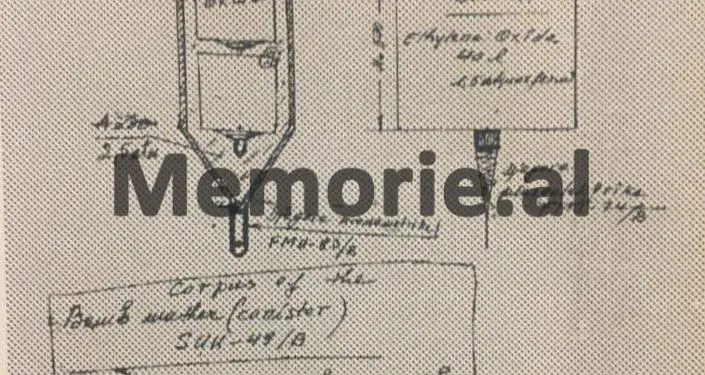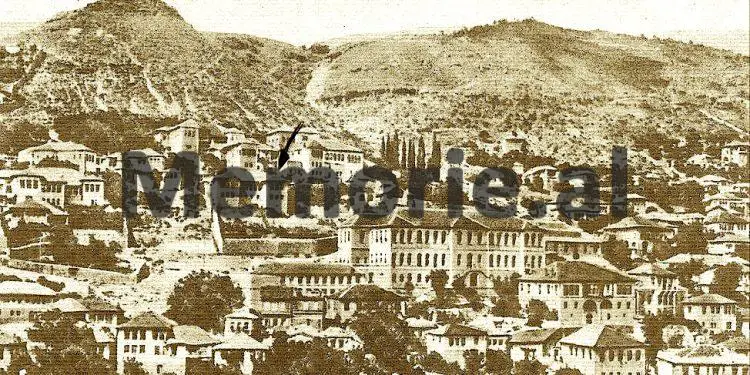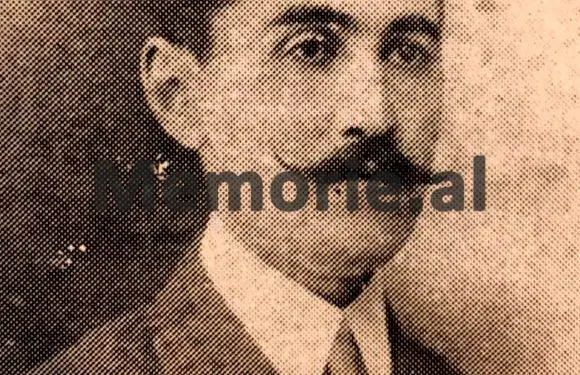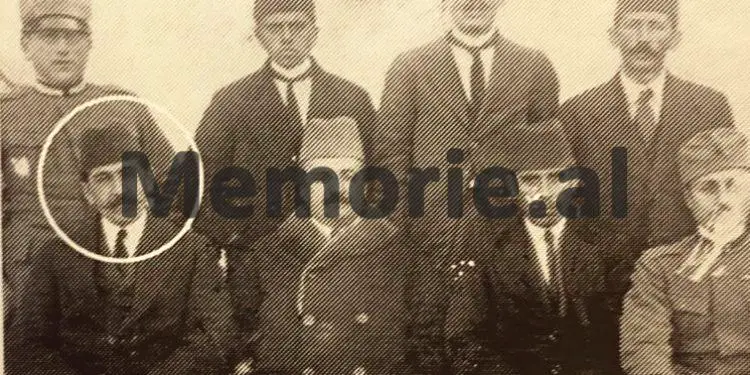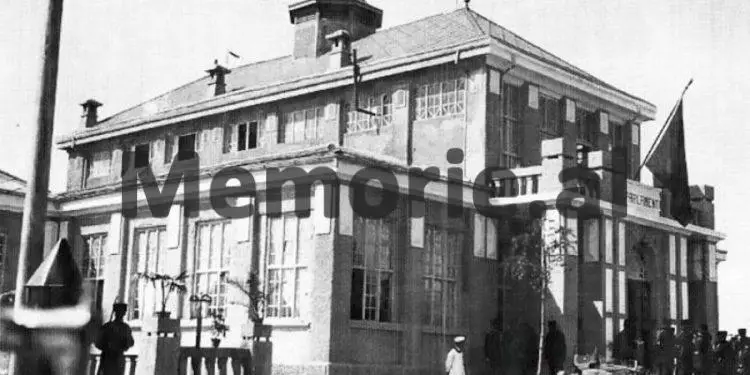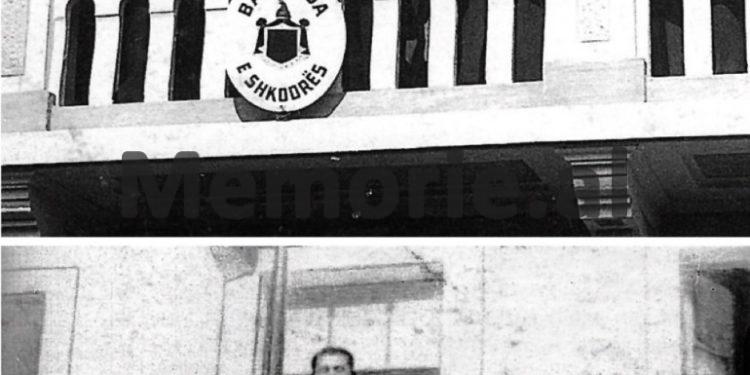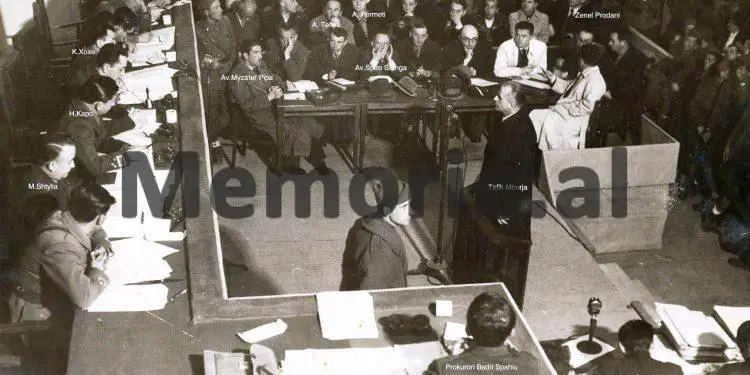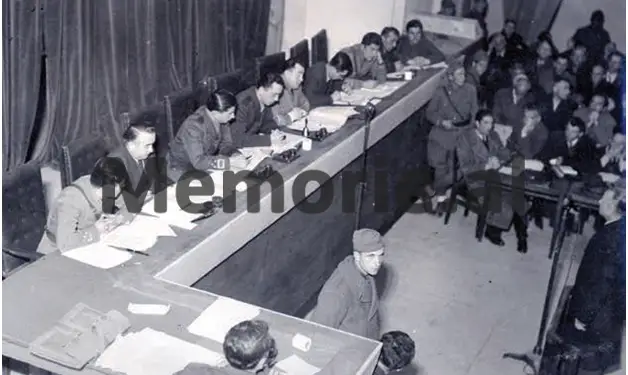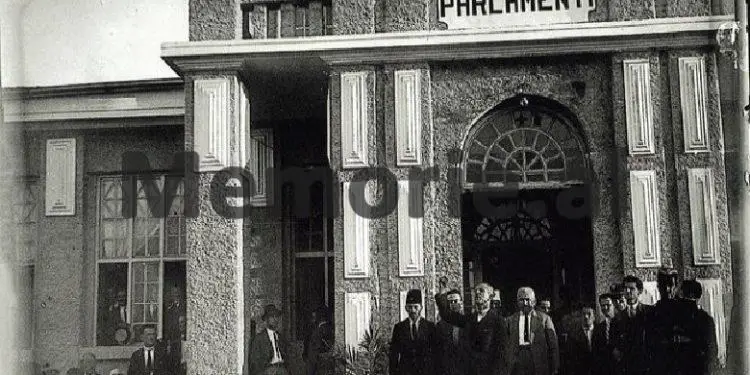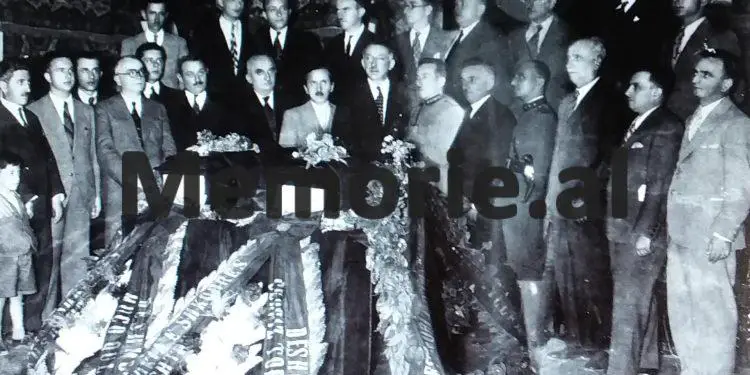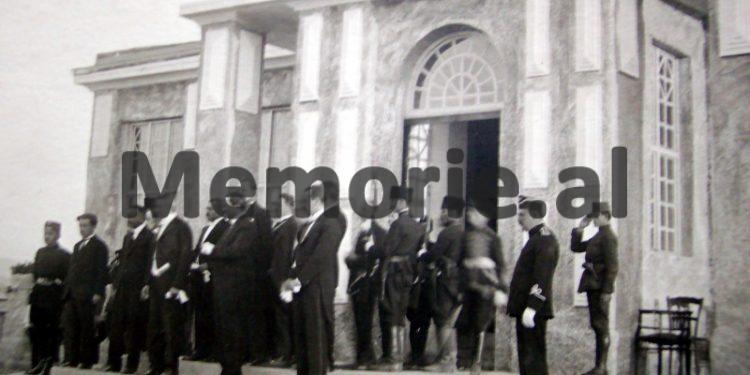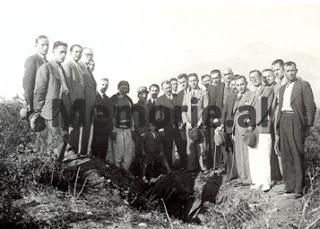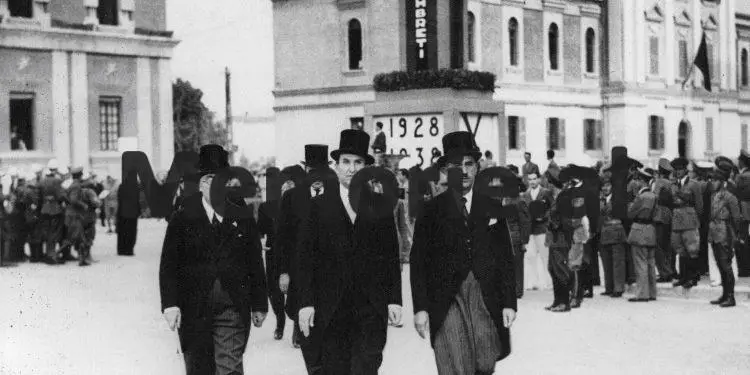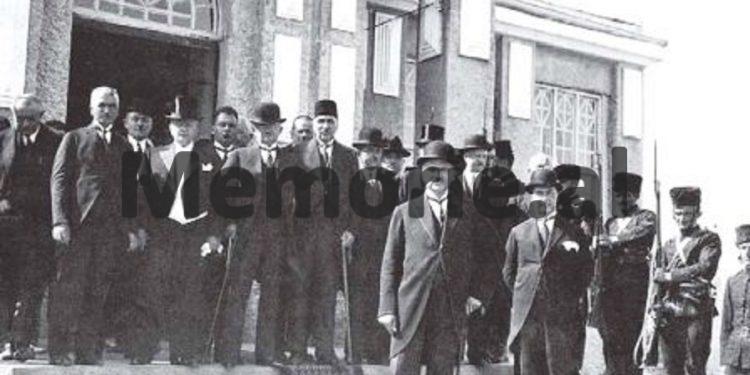Dashnor Kaloçi
Memorie.al publishes the unknown story of Javer bej Hurshit (originally from the distant Caucasus), the former mayor of Gjirokastra in 1920, who later throughout the period of the Zog Monarchy and the occupation of the country (1939 -1944), would serve in senior positions and functions in the state administration, as MP, prefect and minister, until he was arrested by the newly-coming communists in November 1944, who took him to the Special Court in March 1945 and sentenced him to death and shot him, although Enver Hoxha’s father, Mulla Halili, said to his son: “Why are you going to kill Javer bey?!, And Enver replied” “I will not kill him, he kills the people ”, as well as the sentencing of Javeri’s son, Mehmet, the former secretary of the Municipality of Tirana during the occupation, who suffered 25 years in Burrel prison.
The whole story of Javer bey and his family, from the period when he was young and was adapted in Istanbul by the famous southern bey, Maliq Pashai from Libohova, the wealth they inherited after his death, his participation at the head of 450 volunteer forces in 1912 in the fight for the capture of Saranda by the Greek forces by raising the Albanian flag there and in Delvina, saving the city of Gjirokastra by paying 5 thousand gold napoleons to the Greeks who wanted to burn it after the assassination of Despot, which for which was written by the newspaper “Laberia” in March 1925 when he ran for MP, his engagement in public and political life with a long career of nearly 35 years, as mayor, MP, mayor and minister, Ismail Qemali and King Zog, a close friend of Mihal Grameno, Avni Rustemi, Faik Konica and Padre Gjergj Fishta who had donated with an autograph, “Lahuta…”, his organization of official ceremonies for the removal of the remains of Çerçiz Topulli t and Muço Qulli in 1936 in Shkodra, etc., is written by his hand in four thick notebooks, which are preserved by his nephew, Shahin Mehmet Hurshiti.
“As a Special Court prosecutor, I was required by law to assist in the execution of those 19 unfortunates. Some of them entrusted me with their trusts. Among the latter, Javer Hurshiti and Bishqemi sought to preserve the inviolability of their families and children. I told them and guaranteed that their families in Albania would have the same treatment that all residents would have. How much they believed this slogan, a god knows. But the events took place in such a way that they refuted the declarant and all those who claimed to be the builders of a new and happy human Albania… “, Bedri Spahiu, formerly, would write in his memoirs from 1993 The Prosecutor of the Special Court that took place in the distant March of 1945, where 19 people were sentenced to death, former ministers, deputies, military, and senior officials of the Albanian governments, from that of Ismail Qemali to that of Fiqëri Dines under German occupation in October 1944. According to former Prosecutor Spahiu, one of the 19 people who were shot was Javer Hurshiti, who asked that his family not be affected after his execution. Who was Hurshit, what was his origin and past, what functions did he hold in his long political career and why was he being shot being called a “criminal and enemy of the people”?! As in the first part of this article, we are continuing with the publication of the memoirs of Javer Bey Hurshit, which he wrote with his own hand in 1938 in four thick notebooks, which are possessed by his nephew I his, Shahin Mehmet Hurshiti, residing in Tirana
Follows from the previous number
Memoirs of Javer Bey Hurshit
“When Pashai left, Sami Karagjozi pulled me aside and told me that it was not good to sign such a telegram, as we do not know the reasons that forced the Sultan to beg for such a thing. Sami, being a member of that committee, was aware that the proclamation of freedom would soon be imposed on the Sultan. I advised Myhtar agana not to sign that telegram and to declare that he was not from Gjirokastra and that it did not belong to him to sign in the Gjirokastra parish. As for myself I walked away from the salon before returning to Pashai. Two days later, on July 11, 1908, near noon, word spread that the Sultan had granted the people freedom, i.e. decreed the recent entry into force of the founding statute that had been forgotten for 30 years. This news, more than anyone, delighted me as it saved me from the pursuit of Justice. The prefect I mentioned above left Gjirokastar at night. The proclamation of the statute was enjoyed by all nationalists of different nations living in the Balkans. With the eradication of the tyranny of Sultan Hamit, we all hoped that we would enjoy their freedom and national rights and thus live in peace as in a feudal state. All the Bulgarian, Romanian, Greek, and Albanian committees that had made Macedonia a battlefield descended from the mountains and entered the city rejoicing with the people celebrating. Çerçiz Topulli and Demo Emin’s squad (some time ago he had left Saranda and looted the state coffers), landed in Bitola, Thessaloniki, Ioannina where he was received with extraordinary manifestations. Bajua and Çerçizi stayed for a few months in Gjirokastra and Ioannina and then returned to Istanbul where they were both taken in the service of the state “, Hurshiti concludes his memories regarding the events of 1908 when he was also persecuted by the Turks.
Mayor and MP of Gjirokastra
In 1912 Javer Bey Hurshiti at the head of 450 volunteers took part in the fighting of Saranda against the Greeks and in the same year he raised the Albanian flag in Delvina and Saranda. A year later, in 1913, he was appointed by the Albanian side in the composition of the International Commission for the Separation of the Southern Borders of Albania, headed by the Italian general, Telini. Likewise, that year he became the savior of Gjirokastra from the burning that the Greek andarts would inflict on the city, because at the time when the partition of Voroi-Epirus was being sought, certain Albanian clans instigated and paid by the Greeks, killed a Greek despot in Gjirokastra in order to complicate the situation and then blame the Albanians. The Greek Church demanded 5,000 gold napoleons in compensation for the murder of Despot, and otherwise, if that tribute was not paid, it would order the burning of the city of Gjirokastra as punishment. After the ultimatum of the Greek Church, Javer Bey Hurshit paid from his pocket 5000 napoleons of gold and only after this the situation in the city calmed down. This very noble and patriotic gesture would be mentioned by the newspaper “Laberia”, in March 1925, when Javer Bey put his candidacy for deputy in the Albanian Parliament, where among other things it was written: “The local prefect, Javer Bey Hurshiti resigned since put up the candidacy for deputy. We are very sad that one of the best and most capable prefects who have come to this day is leaving us from this prefecture. Javer Bey is one of the most charming people for us, as well as for all those who know his works to our benefit. Javer Bey’s services in the field of patriotism are innumerable. Representatives of this province: and wherever I go Javer Bey will serve us and demand all our rights. The people of Gjirokastra and all of Labëria owe a lot to Javer Bey, who has participated in all issues related to our province, also and his contribution has been one of the most important, especially the salvation of Gjirokastra during the Greek occupation is dedicated to only Javer Beut” (Laberia Newspaper, March 20, 1925). In 1920, Javer Bey supported with all his might and possibilities the Congress of Lushnja, which later elected him head of the local administration of the city of Gjirokastra. Also, during the Vlora War in 1920, Javer Hurshiti participated as commander of the volunteer forces of Gjirokastra who went to fight in Vlora, having with him his son, Mehmet. After Javer Bey had worked and served with devotion in the highest official functions of Gjirokastra, elected by the people themselves, as: Chairman of the rural representation of Libohova and Gjirokastra, (or as he was called at that time as “Guardian of Gjirokastra”), after as Mayor, in 1925 he was again nominated as a member of the Albanian Parliament. After winning by a landslide in the elections that took place in that area, in 1927 he moved from Gjirokastra and settled in Tirana with his whole family.
Orator of the parliament
Javer Bey Hurshiti was an educated man with a wide culture, which made him one of the most active deputies in the Albanian Parliament of those years where he was also one of the most prominent personalities of the political and public life of the country who had studied and graduated from various European universities. Given this, Javer Bey was highly respected by his fellow MPs and was heard in various discussions on the major problems that arose there for solution. Based on this fact, at that time together with Ali Bey Këlcyra, Javer Bey Hurshiti was considered one of the “whistles” of that Parliament. Likewise, at the time, Javer Bey raised his voice in Parliament even when it was demanded that the rights of his fellow MPs be violated, such as the case of Kasem Radovicka, against whom the Ministry of Justice demanded the removal of his mandate and his extradition to court. Regarding this, during the discussions that took place, Javer Bey, among other things, said: “My dear colleague, Dr. Simonidhi started the speech beautifully and sweetly, but ended it with great anger. He made an introduction and said that he would speak as an impartial MP, but he spoke more as a journalist than as an MP. His face also showed anger. Why does Dr. Simonidhi speak like this, we know, what we do abroad as journalists, we leave them out, because here we have nothing to do with the newspaper “Besa” or the “Friend of the People”, Here. As I said, we are only deputies of Albania “. (Central State Archive, Year 1931, File 94, pp. 312-313). In one of the other sessions of that parliament in 1931, Javer Bey Hurshiti raised his voice in defense of the patriots who had fought for Albania, as was the case of Dino Çiço, where among other things he said: “I am convinced that all those who have dealt with the Albanian issue, if they have not known him, they have heard the name of Mr. Dino Çiço. From ancient times, since we did not know what Albania is, he has worked and fought all his life, until the dark days when the city of Gjirokastra fell into the hands of the Greeks. In the Men’s War he was the one who fought at the forefront and showed bravery. This man today is old and in need of bread, so a small salary is required. As Mr. Hiqmet Delvina said, we in Gjirokastra have not asked for patriotic salaries or pensions, because we do not want to be rewarded with veteran money. As for the list that Hazis Xhemali says, we, in that list, should ask the Government to criticize it, to overthrow it, but this should not hit Dino Çiço in the head. A few days ago, he tied a vital salary to Mr. Hasan Starova, and no one objected. Now why not connect with him?! I beg my comrades to accept him and if they doubt his patriotism, I assure you that he is one of the purest…” (Central State Archive, 1932, File 68, p. 11).
Prefect, deputy, minister, etc., in the years 1920-1944
From 1920 when Javer Bey Hurshit was elected Prefect of Gjirokastra until 1944 when he resigned from the post of Prefect of Shkodra, for almost 25 years he remained in Albanian politics holding high positions as: Mayor Municipality, Deputy (1925-1938), Minister of Culture, Deputy Minister of Culture, Prefect, Director of the newspaper “Besa”, Member of the High Council of State and Member of the National Assembly. Throughout this period of time, he worked with a high dedication for the benefit of the national cause and the strengthening and consolidation of the Albanian state. In this context, he worked closely with some of the most prominent personalities of those years, such as Mihal Grameno, Faik Konica, Avni Rustemi, Padër Gjergj Fishta, Qamil Bej Vlora (son of Ismail Qemali), etc. Most of whom he had close friends. Javer Bey was also a pious man and believer and during that period of time he was in those high positions, he contributed a lot of money by financing the erection and construction of some places of worship and religious temples, such as the Great Mosque of Shkodra, whose works he personally attended until its completion. Likewise, in Tirana, when he was a member of the Supreme State Council (Senate), he financed the establishment and construction of the Bektashi Tekke. During the period of several years that Javer Bey was in the position of Prefect of Shkodra, he had a close friendship with Padre Gjergj Fishta, who as a sign of honor, autographed his major work, “Lahuta e Malsisë”, (the book is preserved in very good condition by his nephew, Shahin Mehmet Hurshiti), where he wrote: “The brilliant Mr. Javer Hurshiti, at the expense of honor and honor. The author, Father Gjergj Fishta, 8.XII.1937”. In 1937, Javer Bey Hurshiti welcomed and supported with all his might, the initiative of the nationalist party and the local administration of the city of Gjirokastra led by the well-known lawyer, Hasan Dosti, (which included Enver Hoxha, as a representative of ” Djemurisë Gjirokastrite ”), to go and take the remains of two great patriots, Çerçiz Topulli and Muço Qulli, who were killed by Serbo-Montenegrin forces and were buried in Fushë e Shtojit on the outskirts of Shkodra. Javer Bey took over and personally organized all the official occasional ceremonies that were held there for three days, escorting the funeral procession to the outskirts of the city. During the years of occupation of Albania by the Italians and Germans, as well as many well-known patriots and patriots who sacrificed their name and figure for the benefit and for the high interests of the Albanian national cause, Javer Hurshiti, continued to stand in those duties of high that it had had since the time of the Monarchy. Thus, in 1941, during the anti-fascist demonstration of November 28 held by high school students in Tirana, the then Minister of Interior called Javer and said: “I am sorry Javer Bey that your two daughters, Esma and Dakmareti”! Hurshit calmly replied: “Mr. Minister, my being in these positions does not lose the right of my two daughters to be Albanian.”
Krushqi with Ahmet Zogu and Ismail Qemali
Also, from the end of 1943 and the beginning of ’44, when Javeri was Prefect in Shkodra, he had big problems with the Germans. He intervened with Major Hausding and informed the Foreign Office in a letter stating: “I inform you that the German command here has arrested four Jews and asked you for a large sum of Napoleon gold for their release. “Please immediately notify the General Command in Tirana, so that they do not interfere in our internal affairs, when they have nothing to do with the German army.” Even after this protest that made possible the release of the four Jews, Hurshit intervened again with Major Hausding (chief of the Gestapo in Shkodra) by releasing some young communists from Shkodra who were expected to be interned in the Pristina camp. From these interventions in the middle of 1944, Javer Hurshiti had numerous conflicts with the Minister of Interior, Xhafer Deva, forcing him to submit his irrevocable resignation and handing over the task. In 1943, the Hurshiti family became related to the family of Ismail Qemal Vlora. So, at that time, Ismail Qemali’s son named Qamil (former Albanian Consul in Paris and Belgrade) went to Javer Hurshit’s family in Tirana and asked Javeri’s granddaughter, Esma (his son Mehmet’s daughter) to marry him for his son, Ismail Qemali (had his grandfather’s name). Javeri accepted this and the two families Hurshiti and Vlora became related. Years ago, Javeri had entered into another marriage, as Prince Habib of Turkey, who married King Zog’s sister, was the grandson of Javeri (sister’s son) who, after Javeri left for Albania in 1889, ended up in the court of the Sultan where he married.
Shot by the Special Court
After resigning from the post of Prefect of Shkodra, Javer Hurshiti returned to Tirana with his son, Mehmeti, who lived in a rented house at the New Bazaar, where he found the end of the War in November 1944. He had never even considered leaving Albania, as he did not feel any remorse in his conscience, since all his life he had worked only for Albania. But Javeri seems to have been wrong in those predictions. So, in January 1945 he was arrested at his home along with his son Mehmet, and taken to the Special Court in March of that year, where he held a manly attitude. Hurshit was sentenced to be shot and executed a few days after the trial, while his son, Mehmeti, was initially sentenced to 30 years in political prison, from which he was released and served 15 years. After his release he joined his family in the Lusnja district where she was interned and died there. According to what he had told his son, Shahin, shortly before he died, that cold end of March 1945, when the Special Court was taking place in Tirana and the death sentences were handed down to 19 people who were being tried there., Mulla Halili, Enver Hoxha’s father, said to his son: “Will you kill Javer Beun too?” Enver replied: “People kill him, not me”./ Memorie.al




